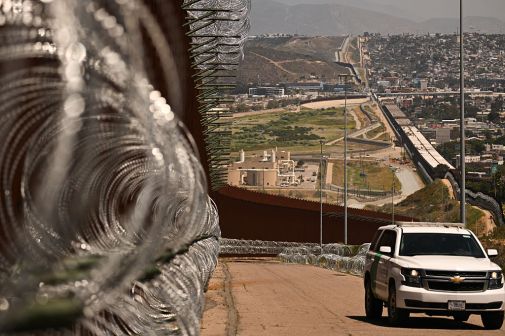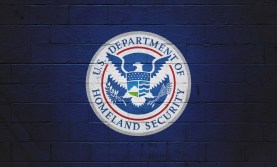The White House is reviewing the nation’s biometrics operation

A White House group helmed by national security adviser Stephen Miller and other homeland security-focused leaders has taken up a new focus: evaluating the federal government’s powerful biometrics program.
The Homeland Security Council is now working with federal agencies and departments to review “all biometrics programs to ensure they perform as efficiently and effectively as possible,” Abigail Jackson, a spokesperson for the White House, told FedScoop on Tuesday.
“The Safety and Security of the American People is the President’s highest priority,” Jackson said. “Biometric screening and vetting programs are a vital part of the Administration’s efforts to protect U.S. Citizens.”
The review comes amid recent FedScoop reporting that the Department of Government Efficiency has extended its operations to the Office of Biometric Identity Management, a small but influential office within DHS that helps oversee one of the world’s largest biometric databases.
Sources told FedScoop that DOGE has become involved in evaluating the future of the Homeland Advanced Recognition Technology (HART) program, a cloud-based biometrics database that was supposed to replace the Automated Biometric Identification System (IDENT), which is now decades old. There has also been significant upheaval at OBIM: Staff were recently instructed to share conference rooms and workspaces, and, at one point, were asked to bring their own chairs to the office — though that particular request was later rescinded.
IDENT relies on hardware that’s expensive to replace and is based on-premise, making the current version system less than ideal, sources have told FedScoop. HART, however, is behind schedule, has seen costs surge beyond what was initially anticipated, and is still not operational.
Another DHS-run biometrics program, the Traveler Verification Service, is operated by Customs and Border Protection. The TVS system is a facial recognition-based entry and exit system that travelers can encounter at airports, along with other ports of entry.
A former senior official in DHS said there were certainly opportunities for efficiency in government biometrics systems, but that there are other equally important factors to consider. These systems, the person emphasized, process some of the U.S. government’s most sensitive data. The systems also have zero tolerance for downtime or errors that could interrupt airport operations — or important investigations. The former official said they hoped the council considered the whole picture.
A spokesperson for CBP told FedScoop that the agency cannot comment on White House Homeland Security Council decisions before they are finalized and announced by the council.






